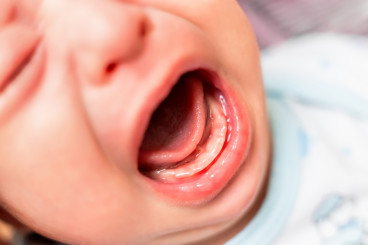Adult Dentition
Adult dentition refers to the full set of permanent teeth that develop and replace the primary (baby) teeth in humans. This transition from the deciduous (baby) teeth to the permanent adult teeth typically occurs between the ages of 6 and 12 years.
32 Permanent Teeth
The adult dentition consists of 32 permanent teeth, including:
Incisors (8 teeth): The four front teeth in the upper and lower jaws, responsible for biting and cutting food.
Canines (4 teeth): The pointed teeth located next to the incisors, used for tearing and gripping food.
Premolars (8 teeth): The teeth situated between the canines and the molars, used for chewing and grinding food.
Molars (12 teeth): The large, flat teeth at the back of the mouth, used for chewing and grinding food.
Function and Role
The adult dentition is designed to provide a strong and efficient chewing surface, allowing for the effective breakdown of food during the digestive process.
As the permanent teeth erupt and replace the primary teeth, the jaws also continue to grow and develop, accommodating the larger, more complex adult dentition. This process is guided by genetic and environmental factors, and any disruptions or abnormalities during this critical developmental stage can lead to various dental and orthodontic issues, such as crowding, malocclusion, and impacted teeth.
Differences between Primary and Adult Teeth
One of the key differences between the primary and adult dentitions is the durability and longevity of the permanent teeth. Unlike the baby teeth, which are eventually shed and replaced, the adult teeth are intended to last a lifetime with proper care and maintenance. However, this does not mean that adult teeth are immune to problems; they can still be affected by various dental conditions, such as cavities, gum disease, and trauma.
Benefits of Good Oral Hygiene
Maintaining good oral hygiene, regular dental check-ups, and a balanced diet are essential for the health and longevity of the adult dentition. Brushing and flossing regularly help to remove plaque and prevent the buildup of harmful bacteria, while professional cleanings and examinations can identify and address any emerging issues before they become more serious.
In addition to overall dental health, the adult dentition can also have a significant impact on a person's appearance and self-confidence. The alignment, color, and condition of the teeth are important factors in determining the aesthetics of the smile. Advancements in modern dentistry, such as teeth whitening, orthodontic treatment, and cosmetic procedures, have made it possible for individuals to achieve their desired smile goals and improve their overall facial appearance.
It's important to note that the adult dentition is not a static structure; it can undergo changes and adaptations throughout a person's lifetime. As people age, their teeth may experience wear and tear, and the jaw structure can shift, leading to potential issues like tooth loss or changes in bite alignment. Regular dental check-ups and proactive preventive care can help to maintain the health and function of the adult dentition well into the later stages of life.
Conclusion
In conclusion, the adult dentition is a complex and dynamic system that plays a crucial role in the overall health and well-being of an individual. Understanding the composition, development, and maintenance of the adult teeth is essential for maintaining optimal oral health and achieving a beautiful, confident smile.
Explore dental treatment options and find the best price with Dr. BestPrice.



